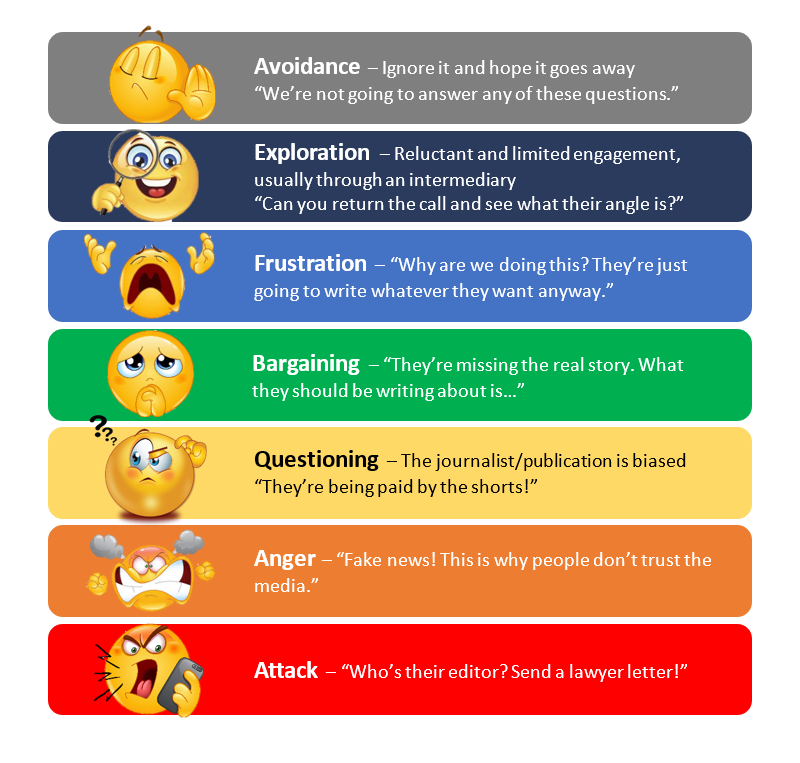Successfully Managing Negative Media Pressure
Managing uncomfortable inquiries requires the skill and professionalism of an experienced advocate
Anyone who has heard the old maxim, “If it bleeds, it leads” understands that there is a bias toward negative news in media reports. And for good reason – psychological research shows that readers tend to choose negative news over positive stories — even though they say they prefer positive news.
The fact is, “Business as Usual at Company X” is not news. And given this propensity to focus on negative developments, those who practice in the court of public opinion are familiar what we will call the “uncomfortable media inquiry,” or UMI. In most cases, the UMI starts out as a seemingly friendly e-mail or phone call to the company’s regular media liaison, identifying the topic of interest, maybe even posing a few pointed questions and asking for an on-the-record comment or interview.
Having been on the receiving end of many UMIs, the initial determination about how to handle the inquiry is a critical point in the media relations process. When not managed properly, these unwanted intrusions can lead to a progression of outcomes that we’ll call:
The Seven Stages of Scrutiny

How to Manage an Uncomfortable Media Inquiry Properly
How to Manage an Uncomfortable Media Inquiry Properly
1. Engage. If done strategically, some level of engagement almost always results in some amount of improvement. Don’t expect miracles, but approach the engagement as an opportunity to share your perspective, or at a minimum to fact check what is being written.
2. Do Your Homework and Know the Rules. Make sure to research the reporter’s background, learn what you can about their likely angle, and establish clear ground rules on sourcing before you engage. If done properly, there should be “no surprises” about what is being written, and you should have an opportunity to respond to every point raised.
3. Arm Yourself with the Facts. Most journalists who work for reputable media outlets need their reports to be defensible. Personal attacks, allegations of bias, and expressions of anger rarely further your cause as a well-reasoned argument supported by sourceable facts.
4. Defend Yourself on the Record. If you want to make a counterpoint, state it directly and on the record. Don’t expect a reporter will act as your advocate if you won’t.
5. Know When to Escalate. There are times when it is appropriate to go up the chain, but proceed with caution and make sure you know the personalities involved.
Handling sensitive media inquiries is more of an art than a science. Having a credible advocate on your side to help navigate these issues can make a difference.
Get in Touch
For more information about Reevemark or to inquire about a potential engagement, please send us an email.
Email Us
